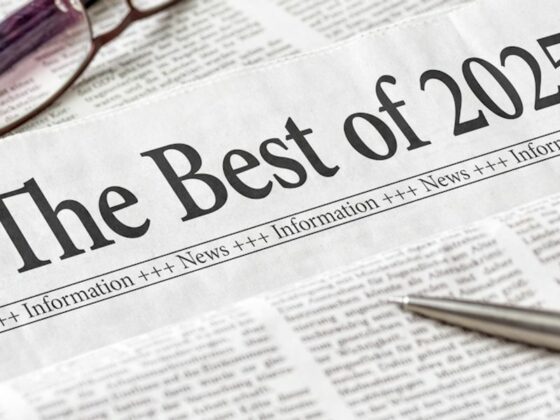
The hospitality market is expected to reach $6189.59 billion by 2028, with some of this growth driven in part by the influence of hospitality business consultants. These professionals are crucial in improving service quality, maximizing operational efficiency and refining market positioning for hotels and restaurants.
They offer strategic insights and best practices to spur growth, boost profitability and help businesses adapt to changing industry trends, ensuring they remain competitive and meet evolving customer expectations. To succeed in this field, consultants need a robust skillset combining deep industry knowledge and broad business acumen.
If you’re considering a hospitality management consultant career, this article will show you the essential skills required for success in this dynamic field.
What is a hospitality business consultant?
A professional in this field works with firms in the sector to help improve customer experience and operational efficiency. They provide strategic guidance to hospitality businesses to increase profitability and streamline processes. Their role includes various responsibilities, such as:
- Market analysis: evaluate hospitality industry trends to identify opportunities. For example, they might study a region’s tourism patterns to advise on peak seasons
- Financial planning: create budgets and economic forecasts. They may suggest cost-saving measures to boost profit margins
- Staff training: plan development programs to improve service quality. This could include customer service workshops for employees
- Operational efficiency: assess and improve day-to-day operations. An example is redesigning the workflow to reduce wait times
- Marketing strategies: devise campaigns to attract and retain customers. They might recommend social media promotions to increase visibility
- Quality control: implement standards to maintain high service levels. This can involve regular audits to ensure compliance with regulations
- Client relations: build strong relationships to better understand requirements. They often gather feedback through surveys to improve offerings
- Technology integration: recommend and implement innovative solutions. An example would be introducing a new booking system to streamline reservations
- Event planning: assist in organizing special activities to draw in customers. This can include planning themed nights or seasonal celebrations
- Crisis management: develop plans to handle unexpected challenges. For instance, they might create a response strategy for health and safety issues
How much do hospitality business consultants earn?
The annual salary for this role varies widely based on experience, location and the size of the client base. These professionals can earn a competitive salary of between $107,054 and $143,995 per year. Highly experienced individuals or those working with prestigious establishments often command even higher fees.
Skills required for a hospitality business consultant
Excelling in this role requires a broad range of abilities to effectively guide and improve operations. From exceptional interpersonal skills to critical thinking, these hospitality skills contribute to improving service quality and operational efficiency.
Analytical skills
A hospitality business consultant must be good at analyzing various types of data to derive meaningful insights. This includes financial data such as revenue reports, cost structures and profit margins.
For example, when consulting for a hotel chain, analytical skills are used to identify which properties are underperforming compared to industry benchmarks, pinpointing specific operational inefficiencies or market opportunities.
Problem-solving abilities
The ability to swiftly identify issues and develop effective solutions is critical in hospitality consulting. Being a consultant means encountering challenges such as declining occupancy rates or negative online reviews.
To succeed, they investigate root causes, such as outdated marketing strategies or service quality issues, and propose actionable solutions such as targeted marketing campaigns or staff training programs.
Communication skills
Clear and effective communication is essential when interacting with clients, stakeholders and team members. Consultants must articulate complex ideas and recommendations clearly to ensure buy-in and understanding. For instance, when working with a hotel’s management team, effective communication ensures proposed operational changes or strategic initiatives are understood clearly.
Project management
Managing tasks efficiently is crucial in hospitality consulting, where timelines and budgets are often tight. Consultants oversee initiatives such as hotel renovations, software integrations or marketing campaigns. They coordinate resources, set milestones and ensure projects are completed on time and within budget, thereby minimizing disruptions to daily operations.
Industry knowledge
A thorough understanding of hospitality industry trends, regulations and best practices enables consultants to provide informed recommendations. For example, professionals well-versed in the rise of digital transformation in hospitality might advise a hotel group on implementing smart room technology to improve guest experiences and operational efficiency.
Negotiation skills
Negotiating contract terms, partnerships and vendor agreements is a key aspect of consulting. This includes securing terms that benefit their clients, whether that’s achieving competitive pricing from suppliers or structuring favorable partnership agreements. For instance, getting a favorable long-term contract with a food supplier can significantly impact a hotel’s cost management and profitability.
Cultural sensitivity
In a globalized hospitality industry, understanding and respecting differences is crucial. This means navigating cultural nuances when working with international clients or managing diverse teams. For example, when helping a resort expand its guest base to include more Asian tourists, sensitivity ensures marketing strategies and guest services are tailored to meet cultural preferences and expectations.
Adaptability
Hospitality consultants must be able to alter strategies according to evolving market conditions, technological advancements and client needs. They update their plans based on feedback and data analysis to maximize effectiveness. For example, during economic downturns, consultants may recommend cost-cutting measures while maintaining service quality to help hotels weather financial challenges.
Attention to detail
Precision in analyzing financial reports, operational processes and market research is critical. Consultants need to review data to uncover hidden opportunities or potential risks. That requires meticulous attention to detail when, for example, conducting a feasibility study for a new hotel development to ensure accurate financial projections and risk assessments.
Leadership skills
Effective management inspires teams to achieve goals and uphold standards of excellence. It is important to lead by example, building a culture of collaboration and accountability. If consultants are leading a training workshop for hotel staff on new service standards, strong leadership ensures staff are motivated and equipped to deliver exceptional guest experiences consistently.
All of these skills are essential for a hospitality business consultant and can be developed through pursuing a hospitality degree.









